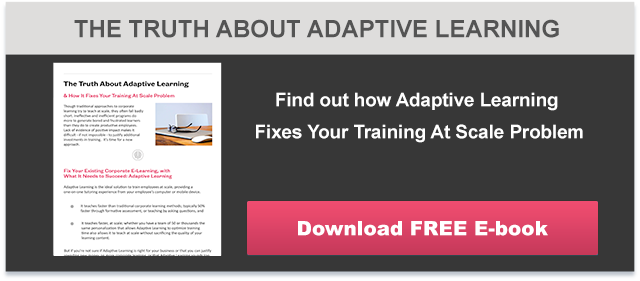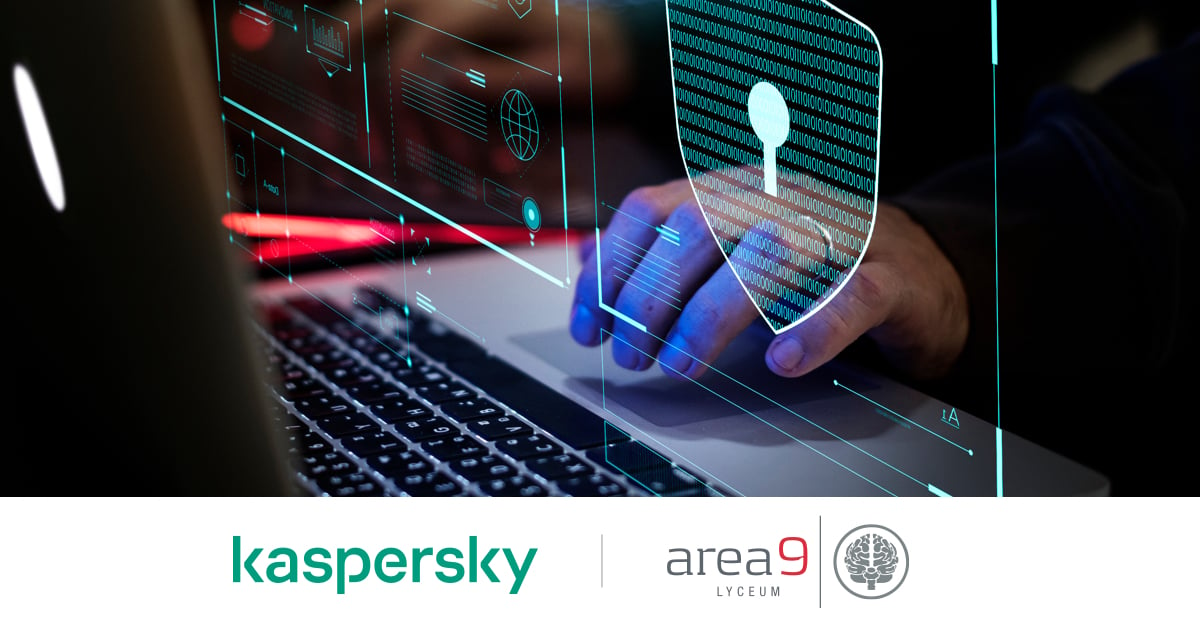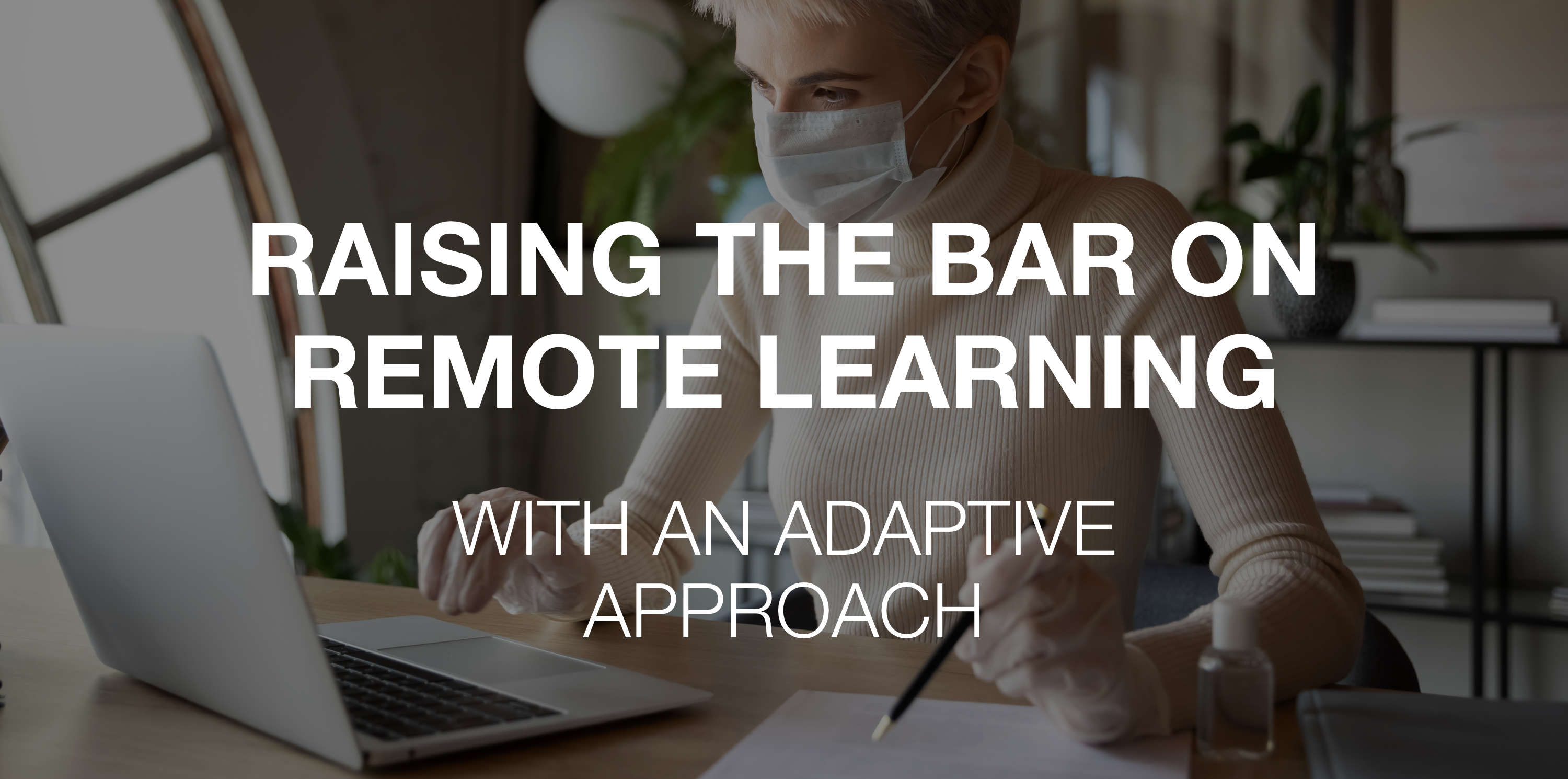We all know what we want from our corporate learning initiatives: learning that has business impact. Some corporate learning approaches claim to provide exactly that, but do they really? Microlearning is one of those approaches. Here, we’ll break down what microlearning is and how it stacks up against Adaptive Learning.
How Does Microlearning Compare to Adaptive Learning?
Microlearning improves learner knowledge retention by delivering content in three to five minute bursts.
In other words, microlearning does a great job of teaching people the way they want to learn. But not in a way that ensures proficiency.
With traditional corporate learning, learners are given a deluge of e-learning resources and expected to digest it all. What really ends up happening is learners forget it all.
Microlearning sets out to correct the problem of learners being presented with too much information at once in a learning environment. It delivers the same amount of learning content as traditional corporate learning, just in smaller chunks, making it easier to digest. The learner’s brain has a better chance of absorbing the information and the learner is not overwhelmed in the process.
The fact that microlearning offers smaller bursts of information is great (Adaptive Learning also has a Recharge function to remind learners of what they’ve learned so they can turn short term memories into long term retention). But smaller bursts over more time does not get at the root of the problem with traditional corporate e-learning. Two massive gaps are still present:
- The small bursts of learning must be meaningful to the learner: If a learner is being shown small bursts of content that they have already mastered or that is irrelevant to their job function, they’re being helped to retain information they don’t need or even want to know. This is a waste of time for the learner and the business.
- The result and effort of learning must positively impact the business: microlearning slows down the learning process by spreading out the same amount of content of long periods of time. When businesses need to be both effective and efficient, the time microlearning takes is not necessarily a good thing. More time spent learning means less time applying what was learned back into the business. Furthermore, microlearning can’t guarantee that after spending extra time learning, learners have mastered the learning content. Mastery is needed so that the learner can take what they have learned and apply it back to the business in the form of productivity and positive business impact.
What Does Adaptive Learning Have That Microlearning Doesn’t?
For e-learning to be truly adaptive it must have artificial intelligence (AI), an algorithm that allows the adaptive engine to interact with the learner. Adaptive Learning personalizes to every learner. It

understands learner behavior and confidence level so that the learner who already knows how to use a fire extinguisher isn’t forced to waste their time on information they’ve already mastered.
With the addition of AI, Adaptive Learning augments your current corporate learning platform and makes it better. Adaptive Learning doesn’t require a business to scrap its existing e-learning; it enhances what’s already been built and presents it in a different, effective way. This makes learning more engaging to the learner and impactful to the business in the form of tangible, real-world results like:
- Reduced training time - businesses have reported spending up to 50% less time on learning.
- Guaranteed learner mastery.
The ability to predict, personalize to, and interact and engage with the learner is where microlearning falls short. While microlearning teaches the way people want to learn, Adaptive Learning teaches the way people need to learn.
What Will Fix the Corporate Learning Problem?
Download this ebook to find out how Adaptive Learning fixes the corporate e-learning problem and to uncover myths about Adaptive Learning.









